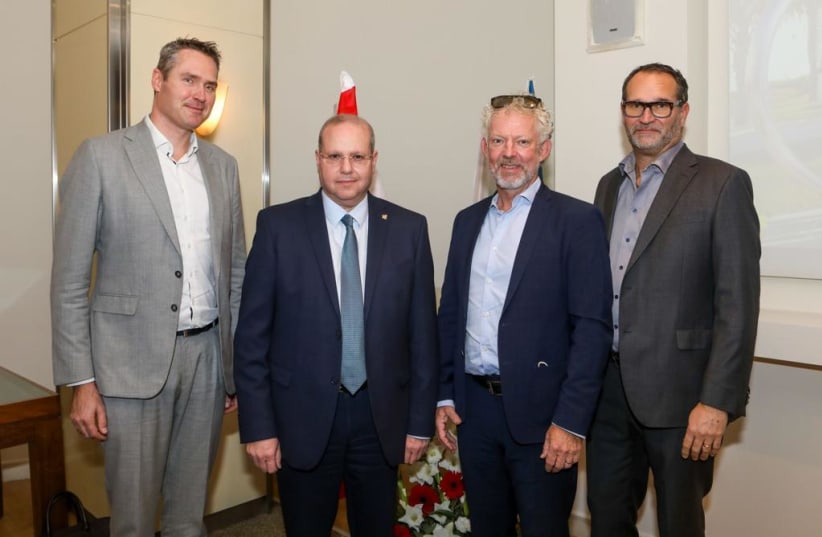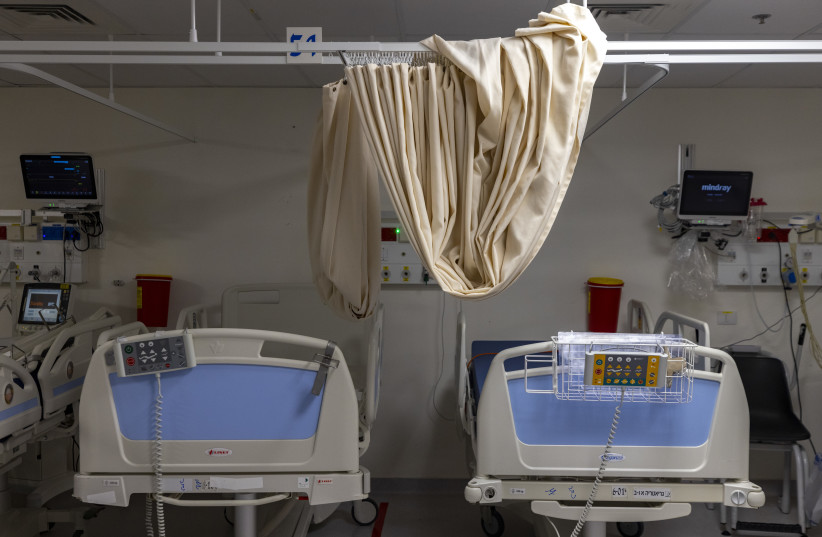A team of 30 top doctors and medical innovation professionals from Nordic countries visited Israel this week to learn from local hospitals.
The delegation, which included CEOs and deputies of some of the top hospitals in Denmark and Sweden, as well as pharma representatives, visited The Rabin Medical Center-Beilinson Campus, Hadassah-University Medical Center, Tel Aviv Sourasky Medical Center and Sheba Medical Center over the course of their trip, which started on Monday.
“The purpose of the delegation was to look at and learn about the way that the government, the hospitals, industry and innovators can work together in a concerted way,” said Magnus Bjorsne, the CEO of AstraZeneca’s BioVentureHub. “Innovation is a collaborative endeavor... and there are a lot of initiatives in Israel, and we are interested in understanding how they are being implemented.”
A special focus was placed on data sharing and the way that Israel’s electronic health record data, the secret sauce behind the country’s stunning and rapid vaccination campaign, could be scrubbed of identifiers and shared for the sake of research at the hospital and industry levels.
The hospital heads were looking at how to tackle innovation inside and outside their hospitals, Bjorsne said.
“If a physician invents something, there needs to be a system in the hospital that can support the continued development of that innovation,” he said. “The other dimension is when someone outside [the hospital] invents something and wants to collaborate with the hospital to implement that innovation inside the hospital.
“These are two totally different mechanisms, but both come down to securing how best to benefit the patient, regardless of where the innovation was made.”
Eytan Wirtheim is the CEO of Rabin Medical Center, the umbrella for Beilinson and Sharon hospitals. He welcomed the delegation, one of the largest from a given region to date. He said that since COVID there has been an increase in the interest in promoting innovation in hospitals worldwide, as the virus pushed the medical establishment to reevaluate its practices and look for innovative ways to treat patients during difficult times.
“We are in the era of innovating, of research and development; of the use of big data and artificial intelligence,” he said. “That was the reason for this visit to Israel – to see what we in Israel are doing in the field.”
Beilinson has put a focus on innovation, Wirtheim said, including launching a program that enables every staff member, from top doctors to nurses and other healthcare aides, to present their own innovative ideas for development consideration. He said every idea is vetted by a team, and an analysis of its viability is undertaken to see if it is feasible. If so, then a project plan is put together, and the hospital aims to implement it.
In recent years, the hospital began using artificial intelligence to better identify the border of tumors in urinary bladder cancer, and implemented a new method for being able to track patients under sedation so that if something happens during a procedure, staff can see it and treat it in real time. Both of these processes came out of ideas generated by the hospital’s staff.
“The main issue is to identify the unmet needs of our patients, see if we have ideas to meet these needs and, if they are feasible and reproducible for all patients in all hospitals, to get them done,” Wirtheim said.
Although there are differences between the visiting hospitals and Israeli hospitals, Bjorsne said, he believes that the collaboration struck during this visit will be long-lasting.
Wirtheim said the group agreed to meet in some capacity already next month, and he is also “more than sure these connections will continue from this point.
“It was their idea to come to Israel. This long and intensive meeting on Monday showed us that we have so much to learn from each other.”

